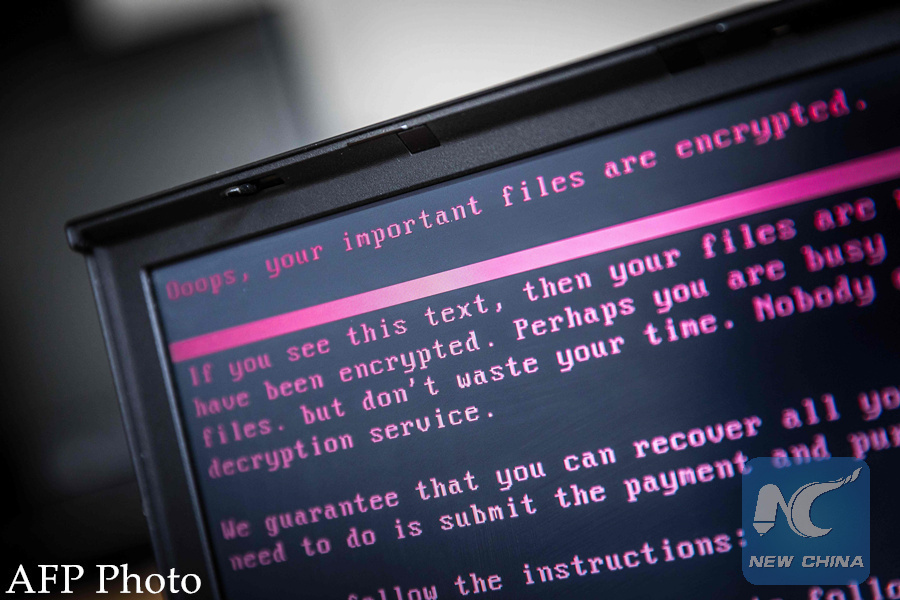
A laptop displays a message after being infected by a ransomware as part of a worldwide cyberattack on June 27, 2017 in Geldrop, Netherlands. (AFP Photo)
MOSCOW, Feb. 21 (Xinhua) -- London's allegations of Moscow being behind the cyber attack against Ukraine in June 2017 are far-fetched and "information warfare" against Russia, said Russia's Foreign Ministry on Wednesday.
"In keeping with the tradition adopted by the West in general, London failed to provide any specific facts, preferring to make groundless and exasperating statements and allusions and pretending that everything is clear even without coming up with any evidence," the ministry said in a statement.
In a statement released on Thursday, British Foreign Office Minister Lord Ahmad attributed the NotPetya cyber attack to the Russian government and the Kremlin, saying Britain and its allies would not tolerate "malicious cyber activity."
Noting that the Western media are spreading accusations of Russia's involvement in the cyber attack, Russia's Foreign Ministry said London is going too far in laying the blame on the Russian government instead of anonymous "Russian hackers."
"A new era of information warfare against Russia is upon us," said the statement.
According to the ministry, Russia has been promoting over two decades proposals on reinforcing global information security and cracking down on malicious activities.
"Despite the never-ending Russophobic campaigning, we would like to remind the international community that Russia remains open to pragmatic cooperation on international information security and call on all the stakeholders to engage in constructive efforts," it said.
The Kremlin on Thursday also rejected Britain's accusations, saying that it was "nothing more than a continuation of the Russophobic campaign based on no evidence."
The attack of a malware dubbed NotPetya disrupted numerous computer systems last year. It first erupted in Ukraine, but the virus later spread to many other countries, including Russia.

